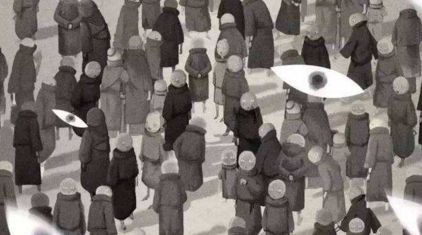
Author: Yang Xiaoshuai Source: Southern Media College
Covid-19 VS natural and man-made disasters VS rumors
Since December 2019, many cases of viral pneumonia have been found in Wuhan, Hubei Province, all of which were diagnosed as viral pneumonia. On January 12, 2020, it was temporarily named 2019 novel coronavirus by the World Health Organization, namely "2019-nCoV".

Since the virus began to spread, the number of suspected patients and confirmed patients has been on the rise. According to media reports, as of 21: 00 on February 2, the number of confirmed cases in China reached 14,489, 19,544 suspected cases and 304 deaths. …
Since the outbreak of the epidemic, with the increasing number of infected people, there is also something undercurrent behind the epidemic, and that is rumors.
Unconsciously, they flowed out from different people and rushed to the network hot search. Since the outbreak of the epidemic, all kinds of rumors have appeared in BLACKPINK. The content is centered on the prevention and control of novel coronavirus, or spread around medical care, or around viruses, or around the media, or around government officials.
Around the medical experts, on January 22nd, Wuhan Health and Health Commission official micro @ Health Wuhan official micro posted a rumor: the information about Comrade Liu Qingxiang, deputy director of Wuhan Health and Health Commission was seriously untrue. Deputy Director Liu Qingxiang is 55 years old. Since the end of December last year, he has been sticking to the front line of pneumonia prevention and control in novel coronavirus. She has no daughter, only one son works in Han; Neither she nor her lover is a doctor, and her lover died in Han last year because of cancer. Online news is false. …
Around the media interpretation, around January 26th, a screenshot was circulated in various WeChat groups. At 9: 30 tonight, Bai Yansong, a CCTV news channel, hosted a live broadcast of novel coronavirus, inviting Academician Zhong Nanshan to introduce the epidemic situation, and invited parents and friends to watch it at that time. Subsequently, they were forwarded in the social circles of major schools, institutions and units, and some units even forced them to forward publicity. In the afternoon, Red Star News, Beijing News and other media reporters learned from the staff of CCTV News Channel "News 1+1" that the news was a rumor. There is no program on CCTV News 1+1 tonight and it will be broadcast tomorrow.
That night, CCTV refuted the rumor in its official WeChat official account "CCTV News". Although CCTV personally rumored, the forwarding of friends circle did not stop. …
Around preventive drugs, online preventive prescriptions, traditional Chinese medicine prescriptions, western medicine prescriptions and other prescriptions were advertised on short video platforms in the official name, and then gradually ended in official rumors, and these rumors eventually overturned.
On the evening of January 31, a mainstream media platform said that Shuanghuanglian could inhibit pneumonia, and many city residents queued up overnight to buy Shuanghuanglian, which led to the pharmacy being out of stock on February 1.

All kinds of ghostly rumors "whack a hamster" appear constantly, and new rumors appear constantly. …
Not only in this novel coronavirus epidemic, but also in other health incidents, there are still rumors. There are also many rumors in the vinegar disinfection of SARS 17 years ago, H7N9 avian influenza and the swine flu epidemic in 2019.
In addition, in the face of geological disasters and man-made disasters, there will also be rumors and rumors to "spoil the situation."
In the past natural and man-made disasters, we can find such a problem: when human beings face disasters, rumors and rumors often appear, sometimes late, but not absent. …
Gossip, rumor spreading and confusing the bewildered audience
What is a rumor? What is a rumor?
Gossip is a kind of news or statement whose source is unknown and can’t be confirmed. It usually occurs in the period when the social environment is highly uncertain, the regular communication channels are blocked or the function is weakened. Gossip mainly appears in the form of spreading the truth. Rumors are mixed with a lot of rumors, rumors: news or information deliberately fabricated out of thin air.
Rumors may be true, but rumors must not be true.
As the main information form in collective behavior, gossip can spread mainly through interpersonal oral communication or group communication.
Collective behavior, as a special social interaction. In modern society, there will be an irregular interactive phenomenon based on the scene at that time in a special occasion, such as fashion, following the fashion, commotion and so on. …
In collective behavior, the content of gossip often involves some special events or sensitive topics. It’s information that has no or no definite evidence. With the development of social network and mobile, the information flow in collective behavior also presents many characteristics:
The rapid proliferation of gossip information. Gossip information and the emotions it carries spread to the crowd at an abnormal speed. Rumors are mixed with "truth", and these seemingly "truth" contents are mixed with anxiety and even fear.
Strange backflow of gossip information. The same rumor has been passed back to its publisher, and many new contents have been added.
Rumors are accompanied by a lot of rumors. Rumor: news or information deliberately fabricated out of thin air. In the gathering behavior, people with ulterior motives use the excitement of the crowd to spread rumors and manipulate the crowd.

In the circulation of rumors and rumors, anxiety is aggravated, and the excitement of the crowd is intensified, thus being overwhelmed.
Reflecting on the "Shuanghuanglian" incident on February 1, whether Shuanghuanglian can really inhibit the virus has not been mentioned as preventable. In the media reports during the day on February 1, it was also said that taking Shuanghuanglian by normal people may cause discomfort. …
It took less than a day from the initial information release, to a large number of people snapping up Shuanghuanglian, and then to the shelves of Shuanghuanglian for poultry on Taobao.
Information flow in collective behavior: group suggestion and group infection
There are two special communication mechanisms in collective behavior, that is, group suggestion and group infection, mainly emotional infection, which spread very quickly;
Group imitation and "anonymity", the former is an instinctive and unconscious imitation, seeking a sense of security, while the latter is mostly a variety of cathartic destructive behaviors caused by people’s loss of social responsibility and self-control ability due to decentralized responsibilities. In the epidemic, there will also be individuals who make rumors about medical care and patient information in the network and release rumors in a cathartic way.

Public anxiety under the innuendo of rumors
On the one hand, the number of confirmed infections is rising, and on the other hand, there is overwhelming news. The public’s pessimism will naturally rise, and the public is anxious in the face of sudden epidemics. However, the news surrounding the epidemic, whether true or false, is always teasing the public’s nerves.
During the epidemic, the topics reported by major media basically revolve around the epidemic report. The rush of media has brought huge information flow and homogeneous reports.

In the epidemic report, Media A reported that patients in a hospital in Wuhan were discharged, and Media B reported the news again the next afternoon. Even, the local epidemic situation was released in the morning and reported by the media at night … The media was caught off guard in the face of a lot of information, and the flood of information flow led to overwhelming news and even repeated reports with serious homogenization.
Crazy information flow and audience’s fear of choice
The originally anxious audience was drowned in the flood of information and fell into the fear of screening information. When rumors and rumors appear as a novel content, they attract the attention of the audience and gradually spread through the Internet or orally.
Convenient social network provides a channel for the spread of rumors. From Weibo to WeChat, from WeChat group to friends circle, rumors can be seen.
On the other hand, the channels of rumor circulation are mostly social networks, which often appear in the form of short videos and chat screenshots. The forms of short videos, chat screenshots and texts have the following characteristics in the spread of rumors: First, they can be shared, and social networks such as Weibo and WeChat can share them directly; The second is grounding gas, short videos and screenshots are rough, which is easy to give the communicators a sense of reality and believe it.
Media literacy that needs to be improved urgently and knowledge gap that is difficult to fill.
Media literacy refers to people’s ability to choose information, question information, understand information, evaluate information, create information and produce information in different media, and reflect information in a speculative way.

According to CNNIC’s 44th Statistical Report on China’s Internet Development, as of June 2019, the proportion of netizens with junior high school, senior high school/technical secondary school/technical school education was 38.1% and 23.8% respectively; The proportion of netizens with college education, undergraduate education and above is 10.5% and 9.7% respectively. Simply from the perspective of netizens’ academic qualifications, we can’t completely conclude the audience’s media literacy, but the gap in knowledge affects the judgment to some extent.
How to distinguish the information provided by various media, especially in the face of professional information such as medical and health care, the ability to judge information is very limited.
Moreover, there is a great gap between the media, medical staff and ordinary net names, and the information that professionals can distinguish may not be distinguished by ordinary audiences.
Solution: cold treatment and speaking human words
In the face of complicated information flow, restlessness is inevitable, and instinctive restlessness is inevitable. The problem is, calm and calm, if the audience questions for a second or two before spreading, rumors may reduce the chances of spreading.
It is not only the audience that is agitated, but also the media. Unconfirmed information sources spread wildly, which is bound to become a gossip propagator, which is likely to lead to panic and panic.
Rumors can make people believe, and a few words will cause a sensation. Its characteristic is short "speaking people’s words", which is easy to understand! Information publicity and health news dissemination in a special period should also say "people talk". Instead of telling how to do a good job of protection with a title party and a long paper, it is better to list the rules and regulations at a glance.
Medical care is desperate at the front line, and rumors should not spoil the situation behind it. Although the epidemic is terrible, what is even more terrible is the heart disease of anxiety and emotion.

It is inevitable to refute rumors and popular science, but it is necessary to clarify the facts in simple words. Whether it is official timely notification or rumors, more keywords and fewer routines can make the problem much simpler.
关于作者